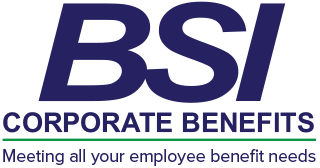Top HR Challenges Facing Employers in 2025
As we dive into 2025, employers will face a new set of challenges, driven by shifting workplace environments and employee expectations. These will center on attracting and retaining talent, fostering diversity, managing hybrid work, and supporting a diverse workforce—all while adapting to new tech and evolving work trends. Here’s a look at the top 10 of what’s trending:
- Talent Acquisition and Retention
The “Great Resignation” isn’t over, and employees are still looking for more meaningful work, flexibility, and better conditions. To stand out, employers will need to offer competitive salaries, attractive benefits, and clear career growth opportunities. Having a strong company culture with a focus on social responsibility won’t hurt in attracting the next generation of workers. - Employee Benefits
With many companies having a multigenerational workforce, benefits need to be flexible and tailored to their specific preferences. As an employee benefits firm, BSI understands offering a broad range of options—from healthcare and wellness programs to parental leave and career development—is key. Employees want benefits that support them at every stage of their life journey. They also seek tools that help reduce overall healthcare costs, such as wellness initiatives, employee assistance programs, telemedicine, chronic condition and prescription drug management, and health savings accounts. - AI Integration
AI is here to stay, and it’s reshaping how we work. Employers will need to figure out how to use it to boost productivity and streamline operations, all while ensuring it doesn’t put jobs at risk. Transparency and clear communication around AI’s role will be essential to gain employee trust. - Employee Wellbeing
Burnout and stress are real issues in today’s work culture. According to DHR Global’s 2025 Workforce Trends Report 82% of employees are experiencing burnout to some level due to long hours, overwhelming workloads, and difficulty balancing work and personal life (1). To keep employees happy and productive, prioritizing wellbeing is a must. By providing flexible schedules, mental health support, and work-life balance — companies can make a difference in supporting their employees’ overall health and happiness. - Hybrid Work Management
Hybrid work is the norm for many companies and focusing on finding the right balance between remote and in-office work will require some new strategies. Employers need to make sure there is a balance, while maintaining company culture and productivity. - Diversity, Equity, and Inclusion (DEI)
Diversity and inclusion are more than just buzzwords these days. Employers will need to address systemic barriers and create spaces where diverse perspectives can thrive. Fair pay, unbiased opportunities for growth and advancement, and access to leadership roles are top priorities for employees. - Sustainability and Corporate Social Responsibility (CSR)
Employees, especially younger ones, are increasingly choosing to work for companies that care about the planet and society. To attract and retain top talent, employers will need to show a genuine commitment to sustainability and ethical business practices. - Personalized Employee Experiences
The days of providing a one-size-fits-all workplace culture is behind us. Employees want personalized experiences that cater to their unique needs, preferences and goals. Whether it’s flexible work arrangements or customized career development plans, employers need to design experiences that make employees feel valued, respected and heard. - Data Privacy and Cybersecurity
With more remote work and reliance on digital tools, keeping data safe is crucial. According to Terranova Security there was a 75% rise in cyber attacks in 2024 compared to the year before. On average it takes 118 days for a company to realize there was a data breach (2). Employers will need to protect sensitive information and ensure employees are trained on cybersecurity best practices to avoid costly breaches. - Change Management
Change is tough, especially when employees are already feeling overwhelmed from past disruptions. Traditional top-down change management or an outdated work design can be part of the problem. Ideally, jobs should be designed to align with how work actually happens. By fostering a culture that involves employees in the decision-making and encourages collaboration across teams, companies can create a more efficient workplace.
2025 is shaping up to be a year full of opportunities and challenges for HR leaders. By focusing on talent, wellbeing, inclusion, and flexible work models, employers can build a resilient workforce that’s ready for whatever comes next. Paying close attention to these areas may not only help your company stay competitive but may also help create a more engaged, loyal team that will be vested for the long haul.

